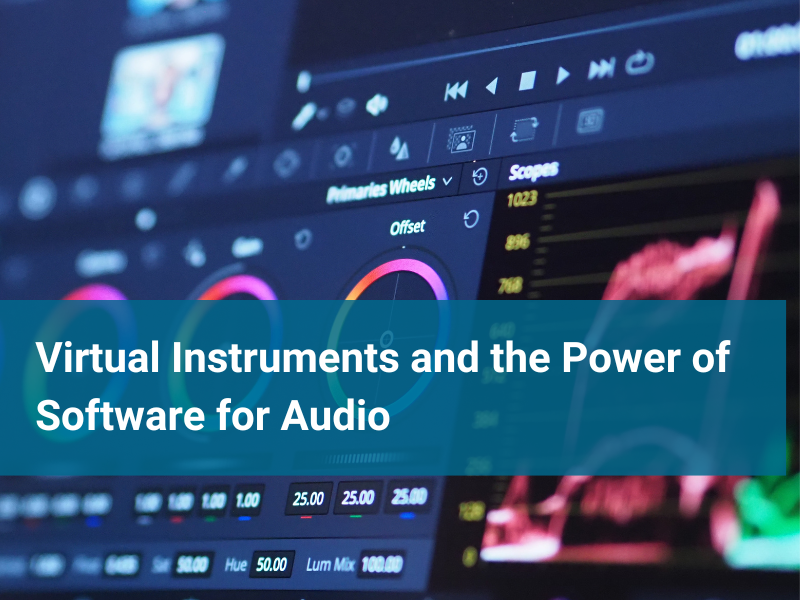Exploring the JUCE Audio Framework in the Audio Programming Industry
- Daniela Vidal

- Jan 11, 2024
- 4 min read
Updated: Feb 2, 2024

In the evolving landscape of the audio programming industry, the demand for robust and versatile frameworks is more crucial than ever. One such powerhouse that has been making waves is the JUCE (Jules' Utility Class Extensions) audio framework.
Developed by Julian Storer, JUCE has become a go-to tool for audio developers, providing a comprehensive set of features that streamline the process of creating cutting-edge audio applications.
Understanding JUCE:
JUCE is the most widely used framework for audio application and plug-in development. It is an open source C++ codebase that can be used to create standalone software on Windows, macOS, Linux, iOS and Android, as well as VST, VST3, AU, AUv3, AAX and LV2 plug-ins.
JUCE allows developers to focus on the most valuable parts of their software by taking care of the differences between operating systems (both desktop and mobile) and plug-in formats. With JUCE’s library of digital audio processing (DSP) building blocks you can quickly prototype and release native applications and plug-ins with a consistent user experience across all supported platforms. Using JUCE also future-proofs your products against operating system and plug-in host updates.
Key Features of JUCE:
Cross-Platform Compatibility:
JUCE's strength lies in its ability to effortlessly adapt to different operating systems. Developers can write code once and deploy it across multiple platforms, reducing the time and effort required for cross-platform development.
Audio Processing Capabilities:
At its core, JUCE is designed for audio development. It provides a set of classes and functions for handling audio input/output, digital signal processing (DSP), and MIDI functionalities. This makes it an ideal choice for developers working on audio plugins, synthesizers, digital audio workstations (DAWs), and more.
User Interface Components:
JUCE includes a comprehensive set of GUI components, making it easy for developers to create visually appealing and user-friendly interfaces. Whether designing a sleek plugin interface or a complex DAW dashboard, JUCE's GUI tools simplify the process and ensure a consistent look across platforms.
Plug-in Hosting:
JUCE facilitates the development of audio plugins by providing a framework for creating VST, Audio Unit, and AAX plugins. This feature is particularly valuable for developers aiming to integrate their creations into popular digital audio workstations like Ableton Live, Logic Pro, or Pro Tools.
Community Support:
The JUCE community is vibrant and supportive, with active forums and a wealth of resources. Developers can tap into this collective knowledge to seek guidance, share experiences, and collaborate on projects. The open-source nature of JUCE also encourages contributions and enhancements from the community.
Use Cases in the Audio Programming Industry:
Audio Plugins and Virtual Instruments:
JUCE is a popular choice for developers creating audio plugins and virtual instruments. Its cross-platform compatibility ensures that these plugins can seamlessly integrate into various DAWs, offering musicians and producers a diverse range of creative tools.
Digital Audio Workstations (DAWs):
The versatility of JUCE makes it suitable for building complete DAW applications. Developers can harness its audio processing capabilities, GUI components, and cross-platform support to create powerful recording, editing, and mixing software.
Music Production Software:
JUCE is frequently employed in the development of music production software, providing a solid foundation for applications that enable users to compose, arrange, and produce music. Its efficiency in handling audio processing tasks makes it a reliable choice for such applications.
Educational Tools:
The accessibility of JUCE makes it an excellent choice for educational tools aimed at teaching audio programming concepts. Its clear documentation and community support further enhance its suitability for educational purposes.
Game Audio
JUCE's audio capabilities extend beyond music production, making it valuable for game developers working on interactive and immersive audio experiences. Its ability to handle real-time audio processing is crucial in creating dynamic soundscapes within games.
The Projuicer
The "Projucer" is an IDE tool for creating and managing JUCE projects. When the files and settings for a JUCE project have been specified, the Projucer automatically generates a collection of 3rd-party project files to allow the project to be compiled natively on each target platform. It can currently generate Xcode projects, Visual Studio projects, Linux Makefiles, Android Ant builds and CodeBlocks projects. As well as providing a way to manage a project's files and settings, it also has a code editor, an integrated GUI editor, wizards for creating new projects and files, and a live coding engine useful for user interface design.
Conclusion
In the dynamic realm of audio programming, the JUCE audio framework has emerged as a powerful ally for developers seeking efficiency, versatility, and cross-platform compatibility. Its impact extends across a spectrum of applications, from audio plugins and DAWs to educational tools and game audio development. As technology continues to advance, JUCE stands as a testament to the importance of robust frameworks in shaping the future of audio innovation. With a thriving community and continuous updates, JUCE remains at the forefront of the audio programming industry, harmonizing the efforts of developers and paving the way for new and exciting audio experiences.
In CodeBranch we develop solutions for several industries including the audio and music industrie using JUCE.
Don't hesitate to contact us if you have any development projects, our audio experts will be happy to assist you.


